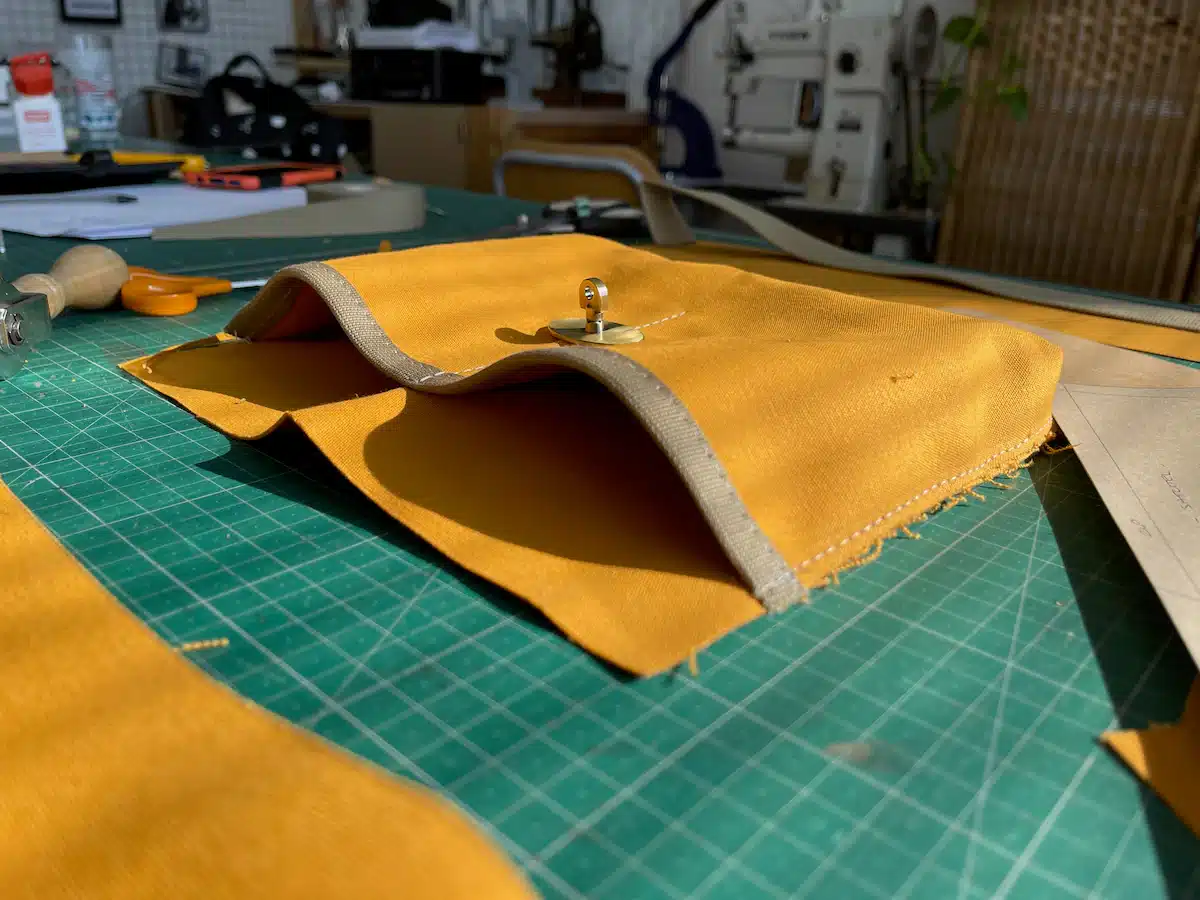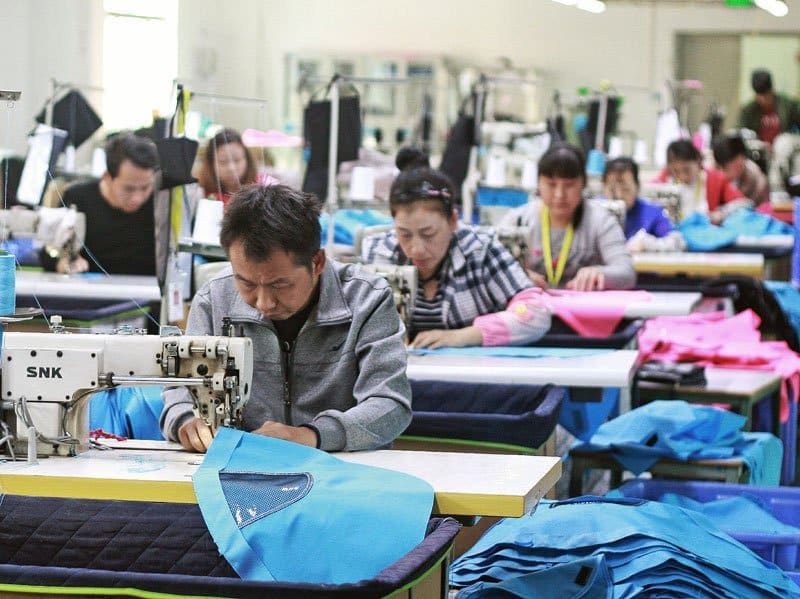Overview
If you’re an entrepreneur or a business owner in the UK looking to bring a new product to market, one of the most important steps in the process is finding a manufacturer. But with so many options available, it can be overwhelming to know where to start. In this article, we’ll explore the key factors to consider when searching for a manufacturer in the UK, as well as some tips to help you make an informed decision.
What is a manufacturer?
A manufacturer is a company or organisation that produces goods or products. This involves a wide range of activities, including design, production planning, material sourcing, assembly, testing, and quality control. The aim of manufacturing is to create products that meet specific requirements and specifications, while also ensuring efficient use of resources and minimising waste. Manufacturing can be done on a small scale, such as handmade goods, or on a large scale, such as mass-produced items. This process is essential in manufacturing products that people use in their everyday lives, from food and clothing to electronics and automobiles. For the purposes of this article, we will focus on consumer product manufacturers.
Success Story
Real-world Experiences and Achievements with UK Manufacturers
Lyndsay Lucero, the founder, created Baxley Bags out of her passion for bags and her desire to design a product that catered to the user’s needs while maintaining exemplary environmental standards.

Lyndsay faced many challenges along the way, including finding a local manufacturer whose prices were twice what she expected. She had to pivot her brand and rethink its positioning. Lyndsay also understood the significance of creating a community around her brand. She started by obsessing over what she was creating, sharing her experience with friends, and asking for help. The feedback she received was invaluable and helped her make better decisions. To develop an interchangeable strap design and prepare for production, Baxley Bags turned to D2M for support.
D2M collaborated with Baxley Bags to create their final prototype and manufacturing specification. Finally, they assisted Baxley Bags in developing the final samples from their UK factory. Today, Baxley Bags has over seven different designs selling via its website, all manufactured in the UK with limited production batches. This approach not only minimises waste but also creates an aura of exclusivity around the brand, with every batch eagerly anticipated and selling out quickly.

Why might you want a UK Manufacturer
Choosing a manufacturer in the UK offers several potential advantages:
- Quality Assurance: Manufacturers in the UK are often subject to strict quality control standards and regulations, ensuring that products meet high-quality benchmarks. This can provide assurance of product quality and reliability.
- Proximity and Communication: Working with a manufacturer in the UK allows for easier communication, collaboration, and oversight. Proximity facilitates regular site visits, face-to-face meetings, and real-time communication, reducing misunderstandings and delays.
- Intellectual Property Protection: The UK has robust intellectual property laws and enforcement mechanisms, offering greater protection for your proprietary designs, innovations, and trade secrets. This can help safeguard your intellectual property rights and prevent unauthorized use or infringement.
- Ethical and Environmental Considerations: UK manufacturers are often held to higher ethical and environmental standards, promoting sustainable practices, fair labor conditions, and responsible sourcing. Choosing a UK manufacturer can align with your company’s values and corporate social responsibility initiatives.
- Supply Chain Resilience: Working with local manufacturers can enhance supply chain resilience and reduce dependence on overseas suppliers. This can mitigate risks associated with geopolitical instability, trade disruptions, or logistical challenges, ensuring continuity of production and timely delivery.
Overall, selecting a manufacturer in the UK can offer benefits in terms of quality, communication, legal protection, sustainability, and supply chain resilience, making it a strategic choice for certain businesses and industries.

Finding a manufacturer to make your product uk Process
How to find a UK manufacturer
When searching for a manufacturer in the UK, it’s important to research your options thoroughly. One option is to explore online supplier directories, which can provide a list of potential manufacturers based on your product type and location. Some popular directories include Thomasnet, Conex, and Kompass. Another option is to attend trade shows for your industry where they have supplier or manufacturer areas. Attending trade shows is a great way to meet manufacturers in person and learn more about their products and services. Don’t be afraid to look further afield for these as Germany often have larger European wide shows where UK manufacturers exhibit.
You can also check forums and social media platforms to find recommendations and reviews from other businesses. Finally, if you’re working with a design company, you can ask for referrals to manufacturers they have worked with in the past. By taking the time to research your options using these methods, you can find a reliable manufacturer in the UK that can help bring your product to market.
The benefits of Choosing a UK Manufacturer
Choosing UK manufacturers for your product development can often be synonymous with opting for quality, efficiency, and reliability. UK production companies are renowned for their high-quality production standards, ensuring that the products are durable, functional, and meet the requisite quality norms.
The shorter lead times associated with UK manufacturing can be a boon for businesses looking to launch their products promptly, enabling them to stay ahead in the competitive market and of course language and cultural barriers don’t exist in the same way as can sometimes be a problem with overseas manufacturing.
Moreover, the easy communication afforded by sharing a timezone can facilitate seamless interactions, fostering a collaborative environment and enabling swift resolution of any arising issues. These benefits make UK production companies a viable option for those seeking to balance quality and efficiency in their manufacturing processes and where cost is less of an issue.
For a more in-depth exploration of the benefits and considerations of manufacturing in the UK, including insights into cost comparisons, quality considerations, and the consistency of UK manufacturing, watch this informative video “UK Manufacturing – Can I make a product in the UK” by the Product Innovation Academy.
Conducting Outreach and Negotiations
Once you have a list of potential UK manufacturing partners, the next step is to conduct outreach.
- Initiate communication by expressing your interest and providing a brief overview of your product and requirements. Be clear, concise, and professional in your communication.
- Arrange meetings or factory visits to gain a better understanding of their operations, production processes, and quality control measures.
- During negotiations, discuss terms, prices, and conditions in detail. Ensure that both parties have a clear understanding of the expectations, responsibilities, and deliverables.
- Focus on building a mutually beneficial agreement that aligns with the interests and goals of both parties.
- Be open to discussions and be prepared to make compromises, but also stand firm on your non-negotiables.
Establishing clear and transparent communication and fostering a collaborative relationship during negotiations can pave the way for a successful long-term partnership with a UK manufacturer.
Moving forwards with your supply partners
Once you’ve found a manufacturer that you’re interested in working with, the next step is to begin the production process. This typically involves several stages, including design communication and finalising a manufacturing specification, sample ordering and comparison, value engineering, negotiation, and finally, order placement. During the outreach stage, you’ll want to gather as much information as possible about the manufacturer’s capabilities, pricing, and lead times. This can involve phone calls, emails, or site visits to their production facilities.
Once you’re ready to move forward, you’ll need to communicate your designs and specifications clearly to the manufacturer, so they can begin the production process. Ordering samples and comparing them can help you ensure that the final product meets your quality standards. Negotiating pricing and other terms is also an important part of the process, so you can ensure that you’re getting the best deal possible.
Once you’ve finalised the details, you can place your order and begin the production process in earnest. By following this process, you can ensure that your product is produced to your exact specifications and delivered on time and on budget.
Difference between manufacturer and supplier?
When it comes to producing a product, it’s important to understand the difference between a manufacturer and a supplier. A manufacturer is a company or individual that produces or assembles products, often in large quantities, while a supplier is a business that provides products or services to other businesses. There are several types of suppliers, including raw materials suppliers, component suppliers, and finished goods suppliers. While some manufacturers may also supply their own products, they may also work with suppliers to source the materials or components needed for production.

Domestic vs. overseas suppliers
Now you have some options you’ve researched, one important decision to make when producing a product is whether to manufacture domestically or overseas. There are pros and cons to both options. Manufacturing domestically can provide better quality control, faster turnaround times, and better communication and collaboration between you and the manufacturer. However, it can also be more expensive due to higher labor costs and other overhead expenses. On the other hand, manufacturing overseas can be more cost-effective due to lower labor costs and other expenses. However, it can also be more challenging to control quality, ensure timely delivery, and communicate effectively due to language and cultural barriers. Ultimately, the decision of whether to manufacture domestically or overseas will depend on your specific needs and priorities.
Why Choose UK Manufacturers?
Advantages of Partnering with UK Production Companies
Choosing UK manufacturers for your product development can be synonymous with opting for quality, efficiency, and reliability. UK production companies are renowned for their high-quality production standards, ensuring that the products are durable, functional, and meet the requisite quality norms.
The shorter lead times associated with UK manufacturing can be a boon for businesses looking to launch their products promptly, enabling them to stay ahead in the competitive market.
Moreover, the consistent communication afforded by sharing a timezone can facilitate seamless interactions, fostering a collaborative environment and enabling swift resolution of any arising issues. These benefits make UK production companies a viable option for those seeking to balance quality and efficiency in their manufacturing processes.
For a more in-depth exploration of the benefits and considerations of manufacturing in the UK, including insights into cost comparisons, quality considerations, and the consistency of UK manufacturing, watch this informative video “UK Manufacturing – Can I make a product in the UK” by the Product Innovation Academy.
Strategies for Finding the Best Product Manufacturers in the UK
Legal Considerations and Quality Control in UK Manufacturing
Embarking on a manufacturing journey in the UK involves navigating a spectrum of legal considerations and maintaining a stringent focus on quality control.
By understanding and adhering to the legal frameworks and maintaining unwavering quality standards, businesses can ensure a seamless and compliant manufacturing process and deliver products that meet the highest standards of excellence.
Navigating Legal Aspects with UK Manufacturing Consultation
Understanding and complying with the legal considerations in UK manufacturing is pivotal for operating within the bounds of the law and maintaining the integrity of the business.
- It is crucial to be well-versed with UK manufacturing laws and regulations, including intellectual property rights, contracts, and liability clauses.
- Seeking consultation and legal advice can aid in navigating these legal landscapes effectively, ensuring that the business is protected and all collaborations are legally sound.
- It is essential to clarify all legal terms, conditions, and obligations before entering into agreements with manufacturers to avoid disputes and ensure mutual understanding and compliance.
By proactively addressing legal considerations and seeking expert consultation, businesses can mitigate risks and foster transparent and lawful manufacturing partnerships.
Ensuring Product Quality with UK Manufacturers
Quality control is a cornerstone in the manufacturing process, impacting the reputation, reliability, and success of the product. When collaborating with UK manufacturers, it is imperative to establish clear quality standards and criteria that the products must meet.
- Regular inspections, audits, and testing should be conducted to assess the quality of the products and identify any discrepancies or defects early in the process.
- Open communication and feedback loops with manufacturers are essential to address any quality concerns promptly and implement corrective actions.
- Establishing a robust quality control system and maintaining a collaborative approach with manufacturers can ensure that the products are manufactured to the highest quality standards, meeting the expectations of the business and the consumers.
By meticulously navigating the legal aspects and maintaining rigorous quality control, businesses can ensure a smooth and compliant manufacturing process and deliver products that resonate with excellence and reliability in the market.






Finding a manufacturer to make your product uk FAQs
What does manufacturing mean?
Manufacturing is the process of transforming raw materials or components into finished goods that can be sold to customers or used by other businesses. It involves a wide range of activities, including design, production planning, material sourcing, assembly, testing, and quality control. The aim of manufacturing is to create products that meet specific requirements and specifications, while also ensuring efficient use of resources and minimising waste. Manufacturing can be done on a small scale, such as handmade goods, or on a large scale, such as mass-produced items. This process is essential for the creation of products that people use in their everyday lives, from food and clothing to electronics and automobiles.
How do you get a product manufactured?
Getting a product manufactured typically involves several steps. Here are some general guidelines:
- Develop your product: Before you can start manufacturing your product, you need to have a clear idea of what you want to produce. This involves designing your product, identifying the materials you’ll need, and determining how it will be produced.
- Find a manufacturer: Once you have a clear idea of what you want to produce, you’ll need to find a manufacturer who can produce it for you. This can involve researching potential manufacturers online, attending trade shows, or asking for referrals from other businesses.
- Get a quote: Once you’ve identified potential manufacturers, you’ll need to request a quote from each one. This will help you compare prices and services, and choose the manufacturer that best fits your needs.
- Place an order: Once you’ve chosen a manufacturer, you’ll need to place an order for your product. This typically involves providing detailed specifications, such as product dimensions, materials, and production requirements.
- Production: With the order placed, the manufacturer will begin the production process. This can involve sourcing materials, assembling components, and performing quality control checks.
- Delivery: Once production is complete, the manufacturer will ship the finished product to you or your customers.
Overall, getting a product manufactured requires careful planning and research, as well as effective communication with your chosen manufacturer. By following these steps, you can ensure that your product is produced to your specifications and delivered on time and within budget.
How can you identify a potential manufacturer for your product in the UK?
Finding a potential manufacturer for your product in the UK can involve a variety of methods. Here are some ways to identify a potential manufacturer:
- Online supplier directories: Explore online supplier directories that can provide a list of potential manufacturers based on your product type and location. Some popular directories include Thomasnet, Conex, and Kompass.
- Forums and social media: Check forums and social media platforms to find recommendations and reviews from other businesses.
- Trade shows: Attend trade shows to meet manufacturers in person and learn more about their products and services.
- Ask for referrals from your design company: If you are working with a design company, ask for referrals to manufacturers they have worked with in the past.
By leveraging these methods, you can identify a list of potential manufacturers and begin the process of selecting the one that best fits your needs. It’s important to do your research and carefully evaluate each manufacturer to ensure they have the expertise and capabilities to produce your product to your specifications.
What strategies are effective for finding the best product manufacturers in the UK?
When searching for a manufacturer in the UK, it’s important to research your options thoroughly. One option is to explore online supplier directories, which can provide a list of potential manufacturers based on your product type and location. You can also check forums and social media platforms to find recommendations and reviews from other businesses. Attending trade shows is another great way to meet manufacturers in person and learn more about their products and services. Finally, if you’re working with a design company, you can ask for referrals to manufacturers they have worked with in the past. By taking the time to research your options using these methods, you can find a reliable manufacturer in the UK that can help bring your product to market.
What are the types of product manufacturing?
There are several types of product manufacturing, including:
- Mass Production: This is a manufacturing process that involves producing large quantities of identical products using assembly lines and automation. This process is often used for consumer goods such as electronics, automobiles, and household appliances.
- Batch Production: This is a manufacturing process that involves producing a specific number of products at one time, usually in response to a customer order or to maintain inventory levels. This process is often used for custom or niche products.
- Job Production: This is a manufacturing process that involves producing one-off products or small batches of products that are made to order. This process is often used for highly customized products such as furniture or bespoke clothing.
- Continuous Production: This is a manufacturing process that involves producing products 24/7 using automated machinery. This process is often used for products that are in high demand, such as food and beverages.
- Lean Manufacturing: This is a manufacturing process that focuses on reducing waste and increasing efficiency by eliminating non-essential steps in the production process. This process is often used for products with long production cycles, such as aerospace and defense equipment.
Overall, the type of manufacturing process used will depend on the type of product being produced, the demand for the product, and the resources available to the manufacturer.

Conclusion
In conclusion, finding a reliable manufacturer to produce your product in the UK involves careful planning, research, and effective communication with your chosen manufacturer. You can identify a potential manufacturer by exploring online supplier directories, checking forums and social media platforms, attending trade shows, and asking for referrals from your design company. Once you’ve identified potential manufacturers, you’ll need to request a quote, place an order, and work with the manufacturer to ensure your product is produced to your specifications and delivered on time and within budget. By following these steps, you can find a reliable manufacturer in the UK that can help bring your product to market.

